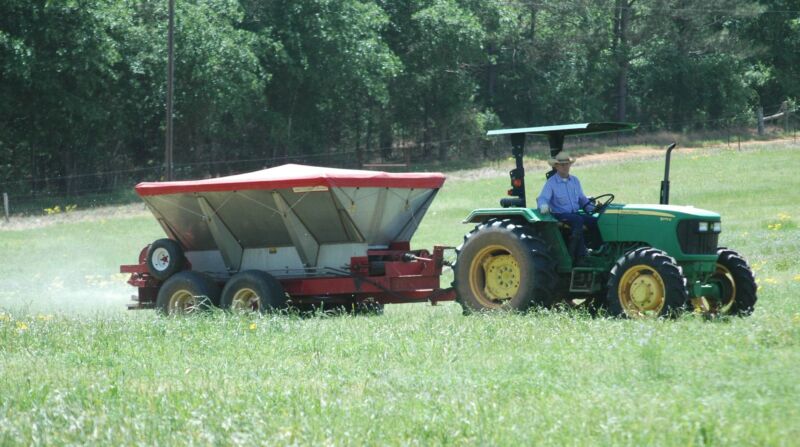Spreading rock dust on farms could be a major climate action

Enlarge / What if we spread finely crushed basalt-or even cement-on cropland? (credit: AgriLife Today)
Eventually (ideally sooner rather than later), efforts to reduce greenhouse gas emissions are going to have to be joined by a technology that actively removes CO2 from the atmosphere. There are a number of options-from re-growing forests to burning biofuels in power plants that capture the emitted CO2-and we'll probably need several of them to get us to net zero emissions. Some of these options involve agriculture, and a new feasibility study suggests that one of them-spreading crushed rock on farm fields-deserves serious consideration.
The study was led by the University of Sheffield's David Beerling; it estimates both the potential for this method of carbon capture in each country and the cost required to do so.
Carbon crushUsing crushed rocks isn't a new idea. Some common minerals react with water and CO2 as they weather, converting CO2 from the air into bicarbonate dissolved in water. That bicarbonate (along with some calcium and magnesium) may hang out in groundwater or make its way into the ocean. And along the way, it can also turn into solid carbonate. Whatever route it takes, it's no longer a greenhouse gas in the air.
Read 12 remaining paragraphs | Comments